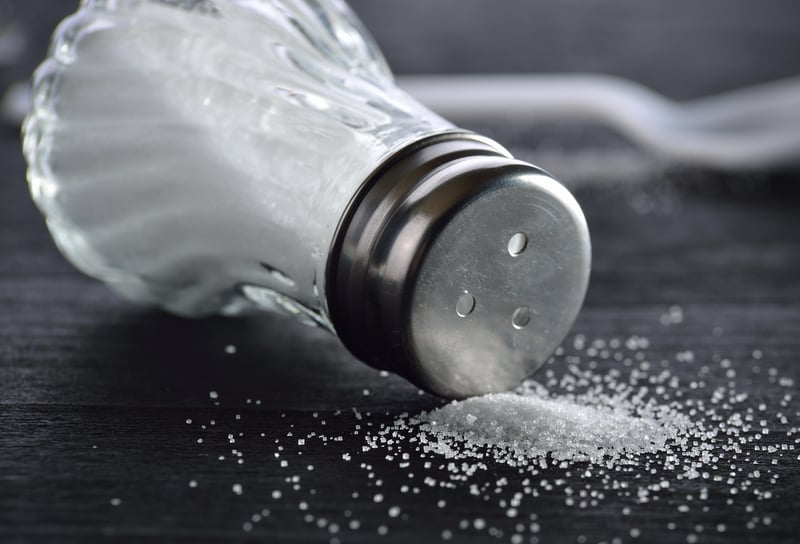Get Healthy!

- Steven Reinberg
- Posted November 30, 2022
Put Away That Salt Shaker to Shield Your Heart
Toss out your salt shaker if you want to lower your risk of heart disease, a new study suggests.
Even if you already follow a low-salt diet, sprinkling salt on your food can raise your risk for heart disease, heart failure and plaque in cardiac arteries, researchers report.
"Compared with people who always added salt to foods -- usually at the table -- those who sometimes, rarely or never added salt to foods had up to 37% reduction in the risk for cardiovascular disease," said lead researcher Dr. Lu Qi, a professor in the department of epidemiology at Tulane University School of Public Health and Tropical Medicine in New Orleans.
"Our findings suggest the potential to prevent cardiovascular disease through behavioral changes -- reduction of adding salt to foods," he said.
This study, published Nov. 28 in the Journal of the American College of Cardiology, cannot prove that adding salt to your food causes heart disease, only that the two are related.
For the study, Qi and his colleagues collected data on the use of salt among more than 176,000 adults. They also looked at the association among adding salt to foods, the DASH diet and the risk for heart disease.
The DASH diet was designed to lower blood pressure and is rich in fruits, vegetables, whole grains and low-fat dairy foods. It includes meat, fish, poultry, nuts and beans. It also limits sugar-sweetened foods and drinks, red meat and added fats.
The researchers found that people who tended to not add more salt to their food were women, white, those at a normal body weight, moderate drinkers, nonsmokers and more physically active -- in other words, people who had a healthy lifestyle.
These same people also had a higher prevalence of high blood pressure and chronic kidney disease, but a lower prevalence of cancer. They were also more likely to follow a DASH-style of diet, which is linked to a lower risk of heart disease.
Meanwhile, those who added salt to their food were more likely to have heart disease. They also had, on average, a lower socioeconomic status and were smokers.
"How often you add salt to a meal is linked to the increase in the chance of having a diagnosis of bad heart diseases like heart attacks and heart failure," said Dr. Sara Ghoneim, a gastroenterology fellow at the University of Nebraska Medical Center in Omaha.
The more often you add salt and the more salt you add increases the risk of heart failure, heart attacks and chest pain, she said.
If you follow a DASH diet and limit your salt intake, "you're actually protecting your heart from these diseases," said Ghoneim, who wrote an editorial published with the study.
Limiting added salt is something everybody can do simply by taking the salt shaker off the table.
"Ultimately, lifestyle modifications are the most important thing," Ghoneim said. "So eating a healthy diet that has less than 2 grams of salt is ideal. Be mindful of how often are you adding salt, because if you're adding salt, that is increasing your long-term risk of having heart disease."
More information
For more on dietary salt, see the American Heart Association.
SOURCES: Lu Qi, MD, PhD, professor, department of epidemiology, Tulane University School of Public Health and Tropical Medicine, New Orleans; Sara Ghoneim, MD, gastroenterology fellow, University of Nebraska Medical Center, Omaha; Journal of the American College of Cardiology, Nov. 28, 2022





